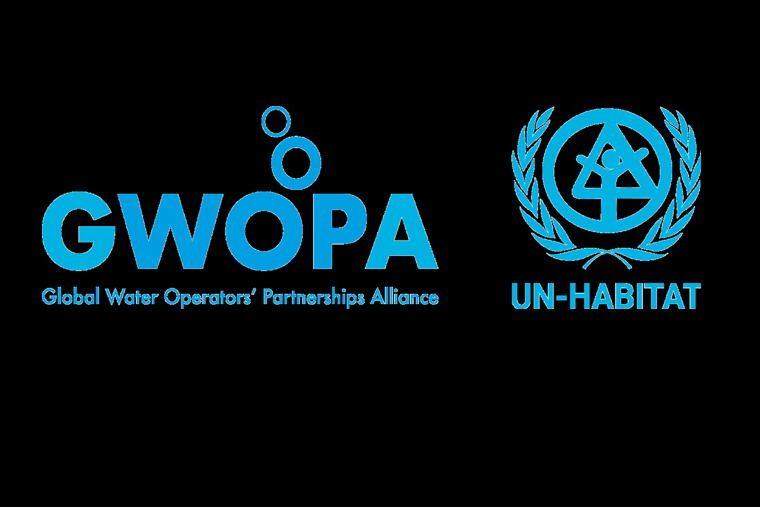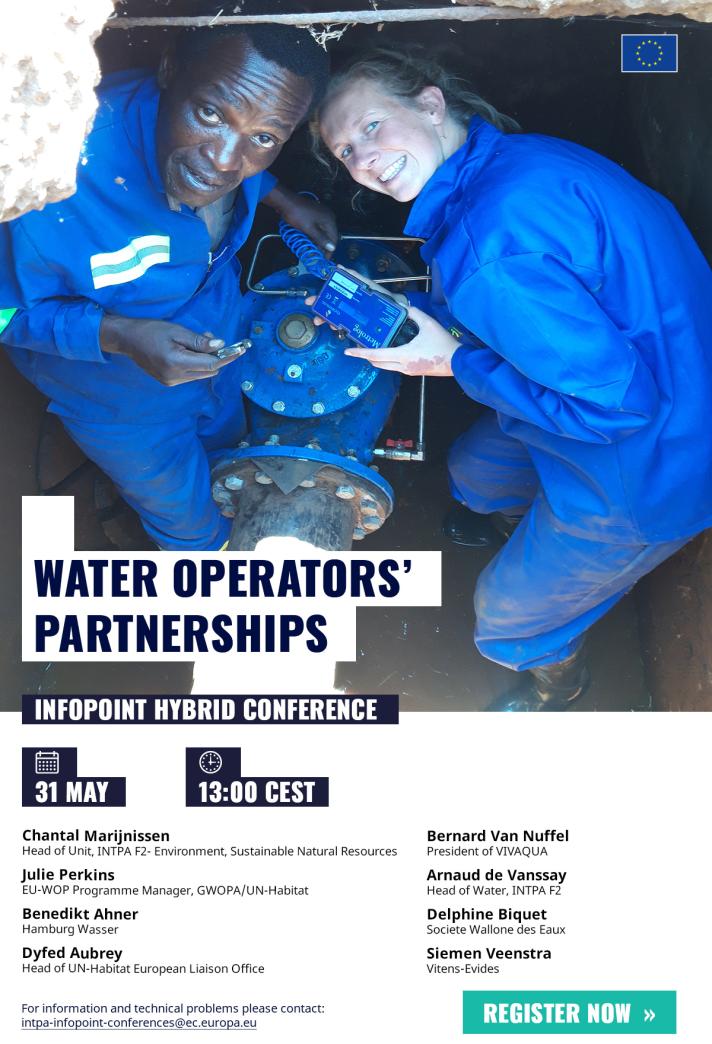The water crisis is global but water is accessed at the local level. This is why European utilities are helping their peers in other countries, on a non profit basis, to develop their capacities to resiliently serve all.
- water protection | water supply | drinking water | cross-border cooperation | circular economy
- Friday 31 May 2024, 13:00 - 14:30 (CEST)
- Brussels, Belgium
- Country
- Belgium
Practical information
- When
- Friday 31 May 2024, 13:00 - 14:30 (CEST)
- Where
- Rue de la loi 43Brussels, Belgium
- Languages
- French, English
- Part of
- Website
- Event website
- Social media links
Description
Water and sanitation utilities working in cities and communities around the world are on the front lines of efforts to ensure that every has access to safe and well managed water and sanitation services. We also count on them to ensure water services are sustainable, resilient and robust in times of crisis, to ensure watersheds are protected, water is safely withdrawn and wastewater is adequately treated.
While many utilities are struggling, others have capacity in abundance to help their peers in other countries to improve their technical and managerial an financial capacities to ensure everyone benefits from their universal rights to basic services. Water and sanitation service providers around the world have many common problems to solve.
Getting safe, accessible and well managed water and sanitation services to all demands a lot of similar know-how and skillsets, even where the context is very different, and they benefit from working through their challenges with peer partners who’ve had experience grappling with the same issues. With rising urban populations, environmental pollution and climate change increasing the challenges for these essential local service providers, the opportunity for utilities to support one another on a solidarity basis has never been greater.
This session will showcase some of the many ways that European utilities have been helping their peers build more robust and resilient services that can serve all. It will look at the human, financial, technical and environmental sides of these diverse partnerships that are being supported by the European Union in Africa, Asia, Latin America and the Middle East and North African cities.


